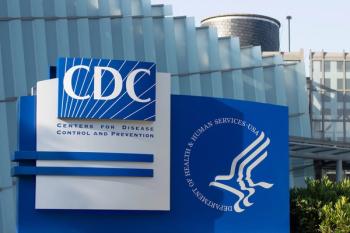
Poll: Online vaccine questions, side effect concerns rise
Patients are increasingly turning to the Internet to have questions about vaccines answered, highlighting the need for increased education at the time of vaccination.
Physicians often cringe when patients come to them armed with an internet diagnosis.
Yet a new poll reveals that patients are increasingly going online after vaccination to ask about side effects, making it clear that more could be done to educate patients about the importance of vaccination and what to expect afterwards.
The
"Many patients, if they consider the flu vaccine at all, are most concerned with what they've heard about relating to possible side effects," Ralph Jennings, MD, a Lakeland, Florida-based family physician and one of JustAnswer's medical experts, told Medical Economics.
The poll showed 53% of visitors to the site searched or discussed with the site’s physician’s allergic reactions, rashes and/or itching associated with the flu shot, and another 19% complained of fatigue and general malaise after vaccination.
The analysis focused primarily on the flu vaccine, but also analyzed search data on other vaccinations. Researchers found that there was a 52% increase in general questions about vaccines from 2016 to 2017. Most of those questions (41%) were about the varicella-or chickenpox-vaccine. Questions about the flu vaccine came in second at 13% of the total vaccination questions, according to the poll. Another 12% of visitors to the site asked about hepatitis A/B vaccines, 10% about tetanus, 8% about shingles, 7% about Japanese encephalitis, 5% about rabies and 5% about other vaccines including the MMR and HPV vaccines.
Where the need is greatest
The poll also provided demographic data about where education about vaccines might be needed most. According to the poll, Kentucky (800% increase) and Mississippi (550% increase) had the greatest rise in visitors asking about the general vaccines or their side effects from 2016 to 2017. Other states will high levels of interest in general vaccines on the site included Georgia, Texas and Washington, DC. Vermont, Wyoming, and Rhode Island had the highest percentage of questions related specifically to the flu vaccine. These demographics show that interest in influenza and its side effects varies significantly by state, according to researchers, suggesting a difference in health resources, education programs and media coverage across the country, highlighting an opportunity for clinicians.
"Given the effectiveness of the vaccine, primary care physicians need to be much more assertive when getting their patients to get the vaccine, emphasizing the need, and reassuring them that the side effects are rare and not serious," said Jennings. "Hopefully this report equips PCPs to have more information that will allow them to make a convincing argument to their patients in favor of getting flu vaccines. This could hopefully lead to more patients adopting the vaccine and thus reduce outbreaks of the flu."
Newsletter
Stay informed and empowered with Medical Economics enewsletter, delivering expert insights, financial strategies, practice management tips and technology trends — tailored for today’s physicians.






